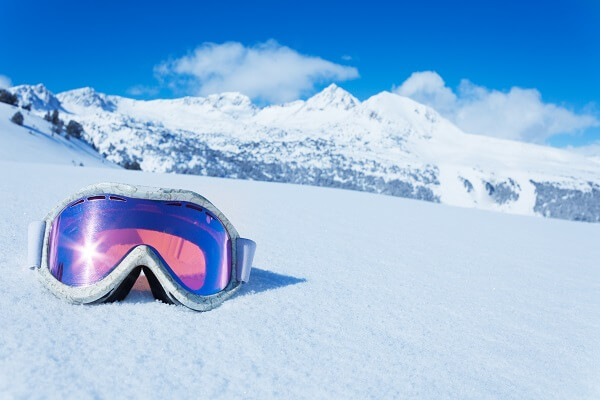A Guide to Staying Safe on the Slopes
Beautiful mountains, fresh air and adventure are just a few of the many reasons to choose a winter sports trip for your next holiday. However, as with any activity based holiday, there can be added risk if you do not adequately prepare for your trip, so here are our top tips for staying safe on the slopes.

Ski Lessons
For first time skiers, it may be tempting to skip the ski lessons and head straight for the slopes, especially if you’re travelling with people who have skied before. However, ski school should be a key part of your first trip, as without professional lessons (not from a friend, but a qualified instructor) you will be more vulnerable to an accident. Not only will they teach you the basics (like staying upright and stopping safely), but they can also help you understand ski etiquette, to ensure you don’t have a mishap on the chair lift etc.
Equipment
Investing in quality equipment is vital to staying safe on the slopes. If this is your first time you may not want to spend loads of money on something you may only do once, so it’s always worth renting equipment in resort, or borrowing equipment (in good nick) from a friend. Some of the important things include UV resistant goggles, waterproof clothing (including socks and trousers), plus quality skis, ski poles and a helmet which fits properly.
Our guide for choosing the right skiing helmet – https://www.holidaysafe.co.uk/winter-travel-advice/choosing-the-right-skiing-helmet/
Preparation
Preparation for the slopes should start before you leave home. It’s easy to forget that skiing and snowboarding are physical sports (i.e. gravity does not do all the work), so like any sport it is vital that you raise your fitness levels and prepare your body for the extra exertion. Once you reach the slopes, don’t forget to wrap up warm and apply sunscreen to your face, to avoid the dreaded ski goggle sun burn lines.
Our guide for getting fit before skiing – https://www.holidaysafe.co.uk/winter-travel-advice/getting-fit-skiing/
Ability
One for the key parts of staying safe on the slopes is knowing your ability. Most ski resorts will have four piste classifications, including green (easy/beginner), blue (moderate/intermediate), red (intermediate/advanced) and black (difficult/expert), and it is really important that you do not venture onto a slope that is beyond your abilities. Not only may you lose control and hurt yourself, but people may not be expecting less experienced skiers to be on the slope, and so they may crash into you by accident. Make sure you check the classifications, start with a beginner slope and then work your way up.
Off Piste
For many experienced skiers, skiing off piste is the real attraction of a winter sports holiday. There are two types of skiing off piste; 1) outside the piste boundary, but still within the boundaries of the resort, 2) skiing outside of the resort boundaries. If you choose option 1, you’ll still get fresh powder and fewer people, but with the added security of clearly marked dangers and resort staff. If you choose option 2, you should always go with a trained guide, as they can ensure you avoid any unmarked dangers (such as trees, cliff edges, and avalanche zones), set a clear route and provide help in the event of an avalanche or injury. Speak to staff at the resort about planning an off-piste adventure.
Read our guide for skiing off-piste – https://www.holidaysafe.co.uk/winter-travel-advice/safety-tips-skiing-off-piste/
Winter Sports Travel Insurance
Although travel insurance cannot protect you on the slopes, it can guard you against any unexpected bills if something goes wrong. Common winter sports claims range from lost or damaged equipment right through to serious medical emergencies, which involve helicopter mountain evacuation and expensive medical treatment. View our winter sports travel insurance policy for more information on our award-winning ski and snowboard travel insurance.
For more tips and advice on planning a disaster free ski or snowboarding trip, visit our dedicated winter sports guides.


